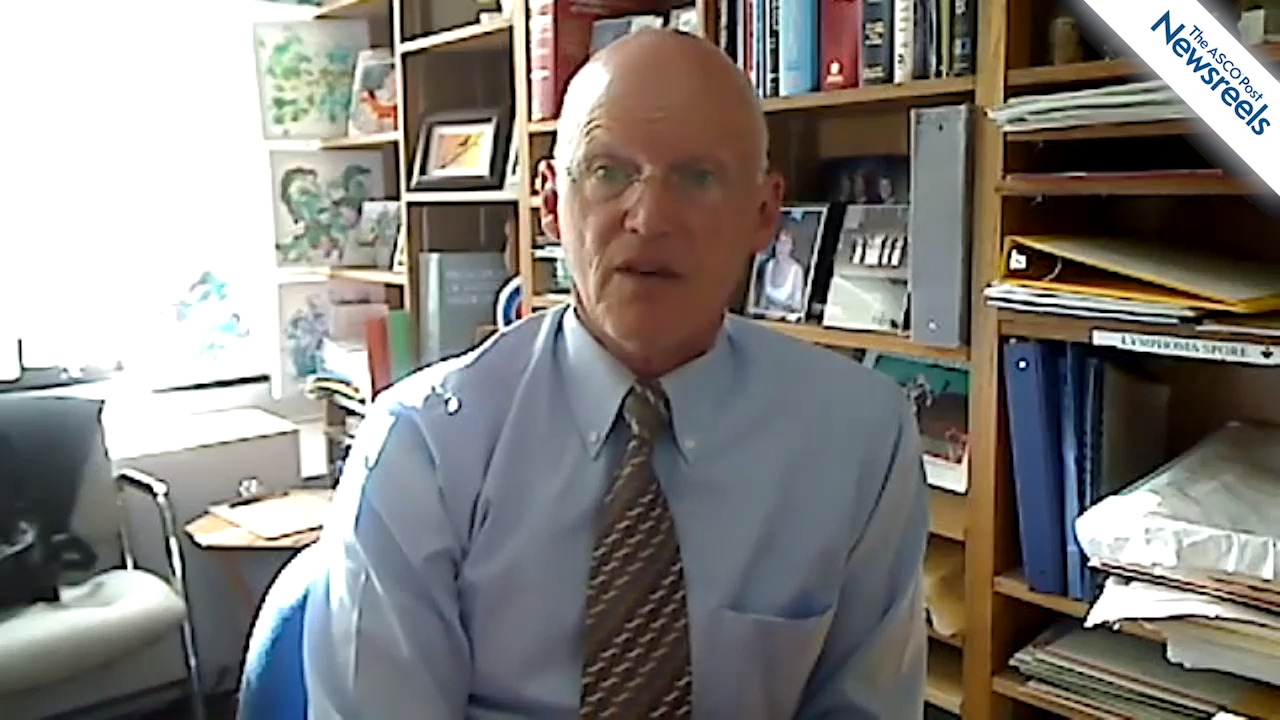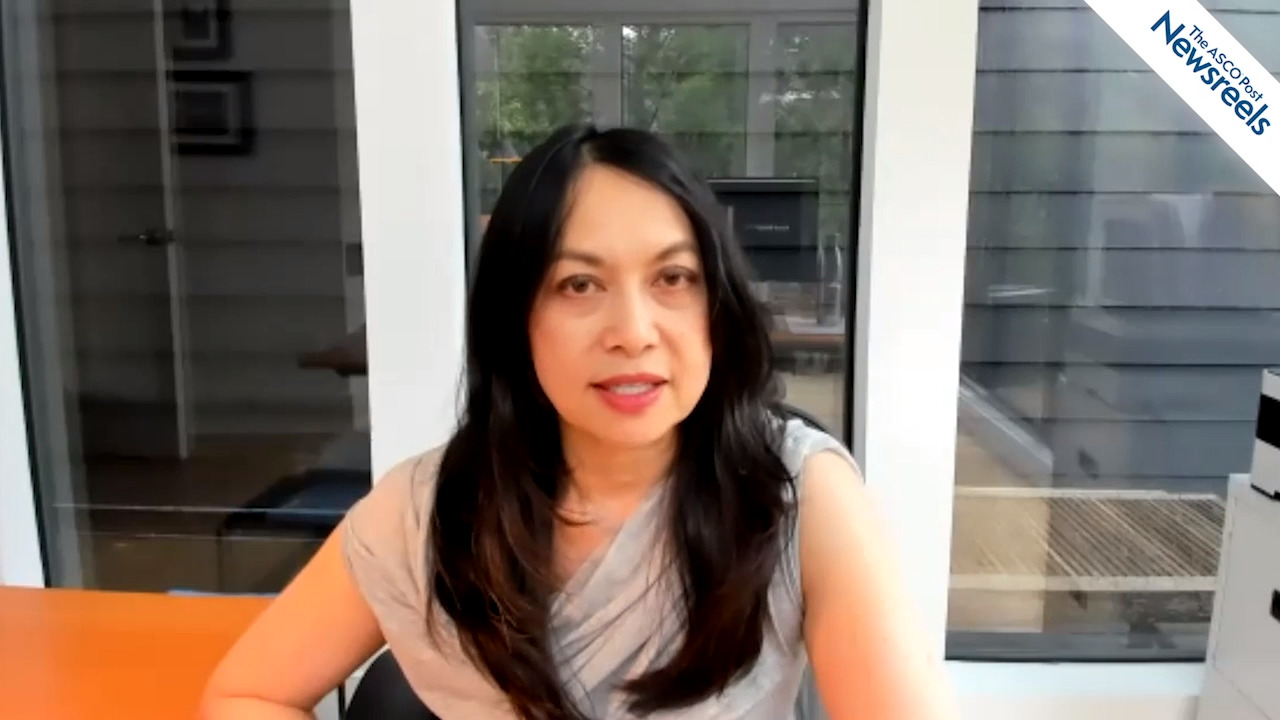Heather A. Wakelee, MD, on NSCLC: Atezolizumab vs Best Supportive Care After Chemotherapy
2021 ASCO Annual Meeting
Heather A. Wakelee, MD, of Stanford University Medical Center, discusses the primary disease-free survival results of IMpower010, a phase III study that compared adjuvant atezolizumab vs best supportive care after adjuvant chemotherapy in patients with early-stage resected non–small cell lung cancer (Abstract 8500).
The ASCO Post Staff
Brian K. Link, MD, of the University of Iowa Carver College of Medicine, reviews three abstracts on state-of-the-art therapies for mantle cell lymphoma: bendamustine, rituximab, lenalidomide and bortezomib; treatment patterns and outcomes for previously untreated patients; and venetoclax, lenalidomide, and rituximab in newly diagnosed disease (Abstracts 7503, 7504, and 7505).
The ASCO Post Staff
Peter H. O’Donnell, MD, of The University of Chicago, discusses response and survival results from the phase II KEYNOTE-052 study, which showed that after up to 5 years of follow-up, pembrolizumab continued to elicit clinically meaningful, durable antitumor activity in cisplatin-ineligible patients with advanced urothelial cancer (Abstract 4508).
The ASCO Post Staff
Cathy Eng, MD, of Vanderbilt-Ingram Cancer Center, discusses two abstracts from a session she co-chaired: the phase II DEEPER trial, which explored the use of FOLFOXIRI plus cetuximab vs FOLFOXIRI plus bevacizumab as first-line treatment in metastatic colorectal cancer with RAS wild-type tumors; and the phase II FIRE-4.5 study, which investigated FOLFOXIRI plus either bevacizumab or cetuximab as first-line treatment of BRAF V600E–mutant advanced disease (Abstracts 3501 and 3502).
The ASCO Post Staff
Geoffrey J. Lindeman, MBBS, PhD, of Peter MacCallum Cancer Centre, discusses results from the phase II VERONICA study, which compared venetoclax plus fulvestrant with fulvestrant alone in women with estrogen receptor–positive, HER2-negative, locally advanced or metastatic breast cancer who experienced disease recurrence or progression during or after treatment with CDK4/6 inhibitor therapy (Abstract 1004).
The ASCO Post Staff
Melinda L. Telli, MD, of Stanford University, discusses results of a phase II study on neoadjuvant talazoparib in germline BRCA1/2 mutation–positive, early HER2-negative breast cancer. In this setting, talazoparib monotherapy was active and yielded pathologic complete response rates comparable to those observed with combination anthracycline and taxane-based chemotherapy regimens (Abstract 505).





